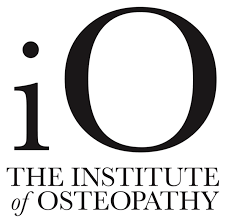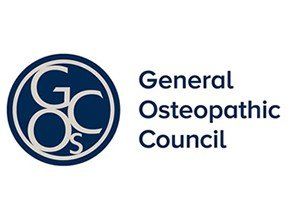Frequently asked questions
- What will happen during the osteopathic appointment?
When you first visit one of our osteopaths they will spend some time taking a medical history, which will include questions about your general health and lifestyle as well as asking you about the symptoms or injuries for which you are seeking help. With your consent they will then perform a physical examination which is likely to involve the osteopath touching the areas of your body that are experiencing pain and observing your movements.
It may be necessary for the osteopath to ask you to remove some clothing, so that they can see and touch the areas of the body causing concern. If you are uncomfortable undressing to you underwear the osteopath may be able to suggest clothing such as shorts or T shirt or close fitting garments, that will not restrict your movements and will enable the osteopath to work effectively without making you feel uncomfortable, so please do discuss this. You are welcome to bring someone with you into the examination room if this puts you at ease and you may request to see an osteopath of the same gender as yourself.
Your osteopath will make an initial diagnosis and discuss a course of action for you. This may involve visiting them a few times for osteopathic treatment, some exercises that you can do by yourself and some lifestyle changes. They will discuss the likely cost of treatment and ask you for your consent to begin treatment.
If the osteopath believes that your condition would not be improved with osteopathic treatment they will refer you to your GP or another suitably qualified professional and will explain why they feel that osteopathic treatment would not help you.
- Will my osteopath be qualified?
Like GPs and nurses, osteopaths are regulated. Because of this patients can be confident that their osteopath is well qualified and insured, will adhere to a set of clinical standards that protect patient’s safety and dignity and, like any health professional, recommend and apply the most appropriate course of treatment for you – which includes referring you on if appropriate.
Osteopaths are registered by the General Osteopathic Council, www.osteopathy.org.uk (GOsC). It is against the law to call yourself an osteopath unless you are qualified and registered with the GOsC. The minimum qualification for an osteopath is completion of a four or five degree, which includes at least 1000 hours of supervised clinical practice. They must then continue to update and expand their knowledge by logging a minimum of 30 hours per year of continuing professional development. The GOsC can remove an osteopath from the register if they fail to maintain a strict code of professional practice. You can check whether an osteopath is registered by visiting the GOsC website (https://www.osteopathy.org.uk/register-search/)
- How many times will I need to come?
This, obviously, depends very much on the diagnosis of your particular problem. Some problems are very painful, but can actually be quite simple to resolve, and the patient may only need one or two sessions. Other people find they feel better within a few sessions, but because of the nature of their problem or, perhaps the job they do, they benefit from regular treatment to help them make the best of their lives. You will have a good idea within two or three sessions as to whether treatment will help you. You are not committing yourself to ongoing treatment without perceiving real benefit.
- Is osteopathy appropriate for me?
Our patients include the young, older people, manual workers, office professionals, pregnant women, children and sports people. Our osteopaths are trained to check for signs of conditions they cannot treat. In these circumstances we will inform you of what we suspect may be the problem and will refer you to your GP or to hospital for further investigations.
- Do osteopaths treat other conditions?
Osteopaths are commonly known for treating back pain and postural problems including changes due to pregnancy, caused by driving or work strain, the pain of arthritis and minor sports injuries. Patients have also found osteopathy helpful for other conditions. Please call us if you wish to discuss whether osteopathy may be helpful for you.
- Will treatment be uncomfortable?
Our osteopaths will work hard to make your treatment as painless as possible, but you may experience some discomfort during and after treatment. Please tell your osteopath if you are experiencing any discomfort. They will stop or change the treatment if you are feeling too much pain.
Following treatment, about half of patients report some mild soreness in the area of the body that was treated, this can usually be relieved with an over the counter pain killer and will go away after 48 hours. If you experience serious or unusual symptoms after treatment you should contact your osteopath straight away for advice.






